It seems that every week another concerning story emerges about the dangers caused by our excessive use of plastic to both society and the planet. This has inspired people to look for alternatives for the single-use plastics in their lives. It has also encouraged companies to create new materials that claim to be the solution to our plastic problem like bioplastics or biodegradable plastics. So, what are these materials, how are they any different to our usual plastic products and how should you dispose of them in Cardiff?
What are these ‘eco’ plastics?
There is an increasing number of alternative plastics that are emerging on the market and the benefits of these materials in comparison to conventional plastics are often debated in the industry, including how easy it is to dispose of them. The table shows a brief overview of the main plastic alternatives and whether they are recyclable.
| Plastic Type | Description | Logo Examples | Recyclable? |
| Biodegradable Plastics | Plastics that under particular conditions are broken down naturally by living things e.g., soil, water, or compost. This can take varying lengths of time and will not necessarily result in something that is beneficial to the earth. | 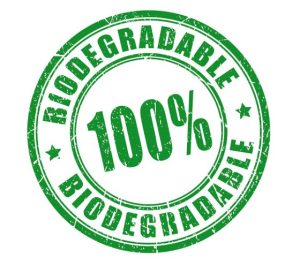 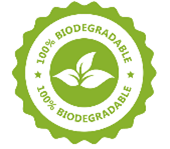
No certified standard |
Not recyclable – must go in general waste. |
| Industrially Compostable Plastics | Industrially Compostable Plastics are able to be broken down by microbes and used alongside food and other organic waste to make compost.
However Industrially Compostable plastics can only be broken down in an industrial/factory setting. |
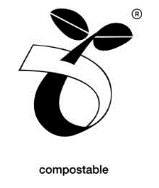 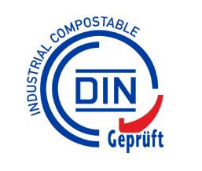 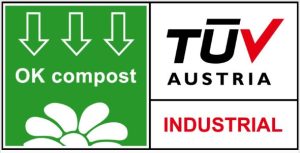 |
Not recyclable –
Must be sent separately to industrial composter or put in general waste.
|
| Home Compostable Plastics | Home Compostable Plastics are also able to be broken down by microbes and used alongside food and other organic waste to make compost.
However, these materials are designed to break down quickly in a home compost bin. (Usually within 12 weeks) |
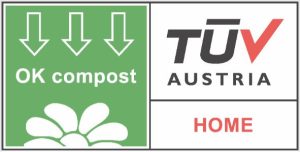 |
Not recyclable –
Should be composted in a home composter or put in general waste bin. |
| Bioplastics/ Bio Based/ Plant Based | Fully or partly made from biological raw materials (e.g., sugar cane). Bioplastics describes what the material is made of, not how they degrade. They are not necessarily biodegradable or compostable but if they are they will be labelled so. |   |
If biodegradable or compostable follow instructions above. If non-biodegradable they might be recyclable if your local authority recycles that product. |
| Oxo-Degradable Plastics | Made from fossil fuels but includes additives that are designed to fragment the materials in the presence of oxygen into microplastics. They will break down very slowly, or not at all, if in oxygen deprived environments like seawater or soil. This is not degradation. | 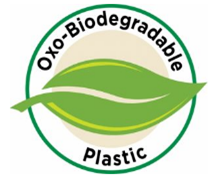 
No certified standard |
Not recyclable – should go in general waste. |
| Conventional Plastics
(Non-Biodegradable) |
Main form of plastic used. Made from fossil fuels and lasts for long periods of time. Can disintegrate into smaller pieces, forming microplastics and accumulate in the environment. |
Usually have a plastic resin code. And a logo indicating how to dispose of. |
Recyclable –
You still need to check if the product is recyclable in your local authority. |
Can ‘eco-alternatives’ go in with normal recycling?
The short answer is no, despite there being multiple ‘eco-alternative’ plastics none of them should go in with normal recycling as they will contaminate it. However, a lack of understanding about these materials and their disposal requirements has led to increasing amounts of them being put into recycling bins.
The only exception to the above is that some bioplastics are recyclable if they are non-biodegradable, but again only if that item can be recycled in your local authority. And it might be very hard to tell if the item is non-biodegradable and a bioplastic.
The confusion over these alternative plastics can be made worse by the fact that many of these products look similar to standard plastic products. It is only by looking at the symbols on the products that you may realise the difference.
What does this mean for you?
If you have bought food or other products in ‘eco-alternatives’ you will need to ensure you put them into the correct bins. If a specialised compostable or biodegradable bin is available this would be the correct place. Otherwise, they must go into the general waste bin. Examples of the products you might see are coffee cups, bottles, cups, cutlery, or takeaway containers.
If you are a business that would like to use ‘eco-alternative’ products instead of conventional plastics, you will need to set up a new waste stream for them and also educate your customers on where to dispose of their items correctly.
How does Cardiff Council waste services deal with ‘Eco-alternatives’
In Cardiff Council, residential and trade waste collections do not have facilities for biodegradable, compostable or oxo-degradable plastics. They contaminate recycling, garden and food waste and could also clog up any machine that is not designed to process them. All biodegradable, compostable or oxo-degradable products should go in general waste.
The only exception is for the compostable food bags provided by Cardiff Council used to collect food waste. These can be either ordered online or collected from stockists.
If a company or business wishes to provide compostable, biodegradable or oxo-degradable products to their customers, they would need to make separate arrangements with a specialised waste collection service.
What do we do?
There is a debate in the waste world, and some people argue that in comparison to conventional plastics, that bioplastics are more sustainable due to the materials they are made from. However, if disposed of incorrectly it is clear they can be a contaminate to recyclable products or will end up in an incinerator or general waste. Meaning they will not bring us closer to reducing our waste and achieving a circular economy.
As we have found out just because a material is bio-degradable or a bioplastic it does not necessarily mean they will break down into harmless or useful smaller pieces. Meaning if littered these products are still a pollutant and we should ensure we do not drop them on the ground or in water sources as they will harm the environment and us. They can stick around littering our environment for a long time.
We believe the better and longer-term solution will be Re-Use. By rejecting single-use items and instead using re-usable products you will help to prevent waste being created.
If you are a customer why not carry re-usable cups, bottles, or cutlery. You can even visit a Refill/Zero Waste Shop.
If you are a business, why not move away from providing single-use items. You could offer incentives for customers bringing their own cups. Or only provide re-usable options to your customers.
Cardiff has recently become a Refill scheme with City to Sea. To find out more about the scheme and how you can help to reduce Cardiff’s single use plastic use go here.


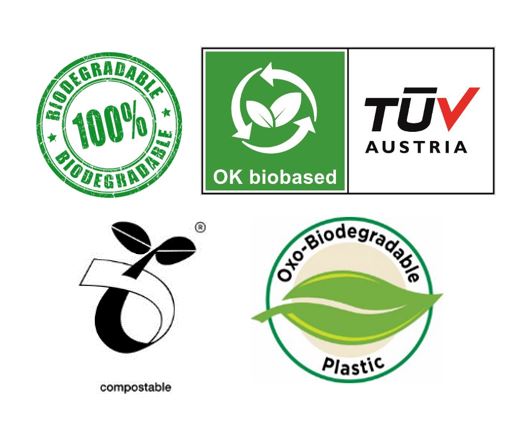
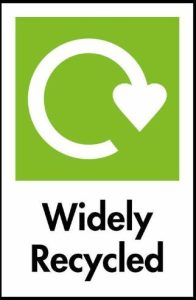
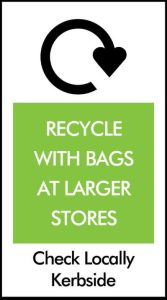
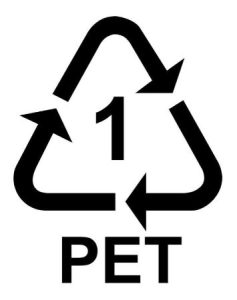
Comments are closed.